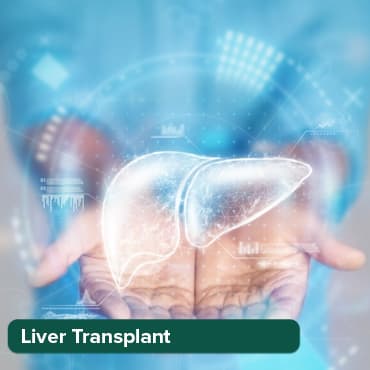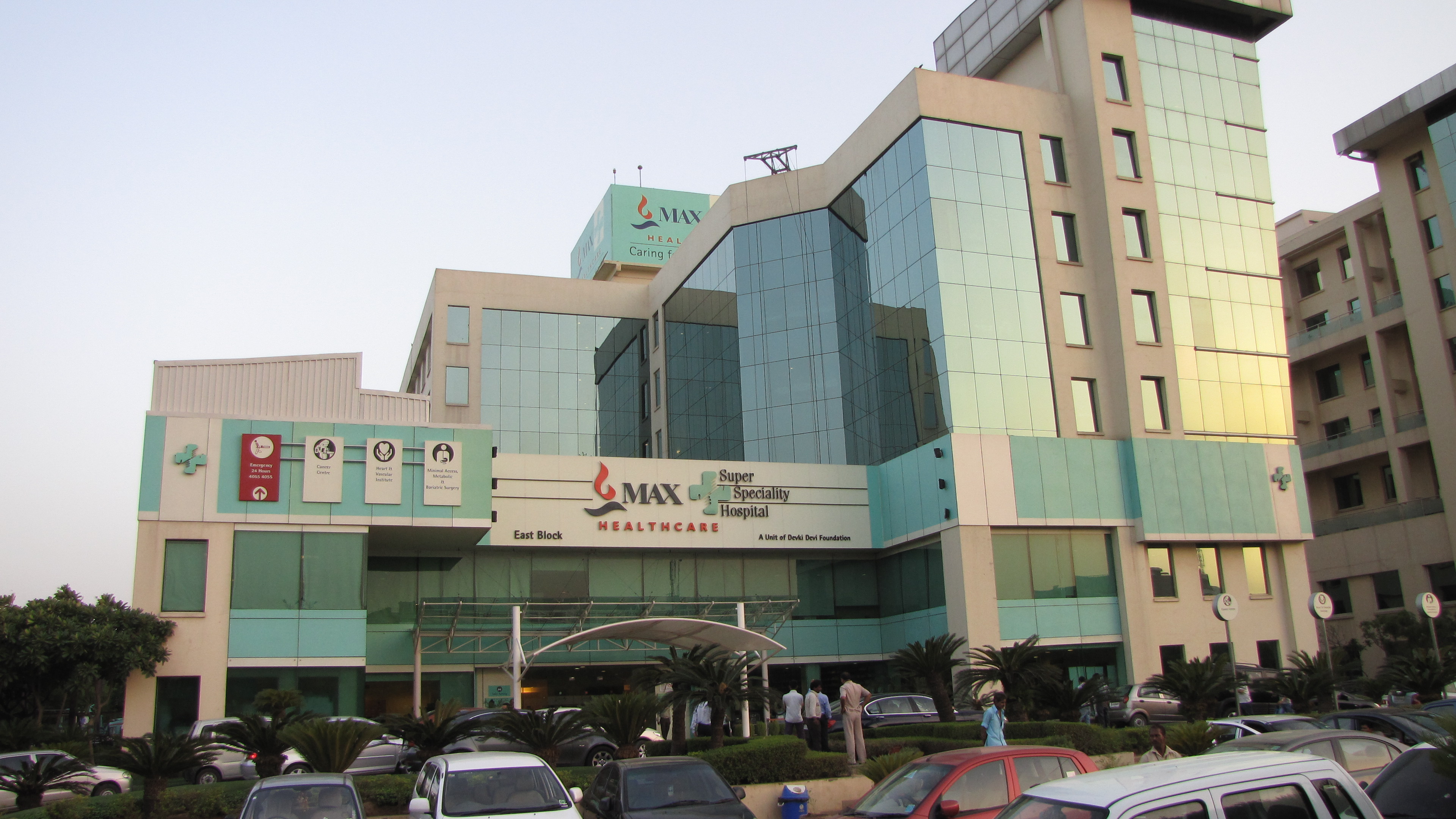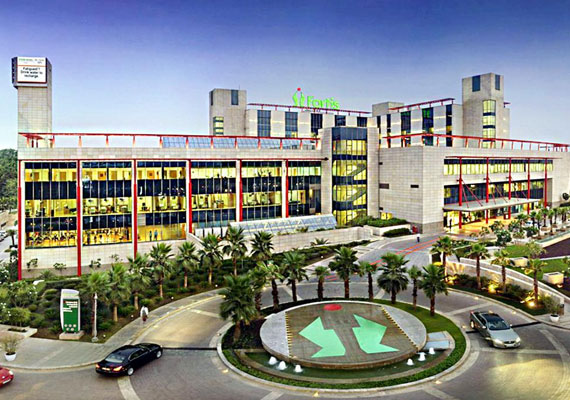
Multiple Myeloma treatment in India
30 Nov, 2023
 Healthtrip Team
Healthtrip TeamMultiple Myeloma, a complex and challenging blood cancer, has seen significant advancements in treatment, especially in countries like India. This blog aims to explore the current landscape of Multiple Myeloma treatment in India, offering insights into diagnosis, treatment options, and patient care.
Transform Your Beauty, Boost Your Confidence
Find the right cosmetic procedure for your needs.

We specialize in a wide range of cosmetic procedures

Symptoms of Multiple Myeloma:
Multiple myeloma is often referred to as a "silent disease" because it can develop slowly and its symptoms can be subtle, leading to delayed diagnosis. Common signs and symptoms of multiple myeloma include:
- Bone Pain: One of the hallmark symptoms is bone pain, which is often described as persistent and deep. It commonly occurs in the back, hips, ribs, and skull due to the accumulation of abnormal plasma cells in the bone marrow.
- Fatigue: Patients may experience unexplained fatigue, weakness, and overall reduced energy levels. Anemia, a common complication of multiple myeloma, can contribute to fatigue.
- Frequent Infections: Multiple myeloma can weaken the immune system, making patients more susceptible to infections. Recurrent or severe infections, such as pneumonia or urinary tract infections, may occur.
- Kidney Problems: The abnormal proteins produced by myeloma cells can affect the kidneys, leading to symptoms like increased thirst, frequent urination, and kidney dysfunction.
- Weight Loss: Unintentional weight loss can occur in some cases, often due to a combination of factors, including reduced appetite and the disease's impact on metabolism.
- Nerve Symptoms: Myeloma can affect the nervous system, leading to symptoms like numbness, tingling, or weakness in the extremities.
Diagnosis of Multiple Myeloma in India:
The diagnosis of multiple myeloma typically involves several steps and a combination of tests:
1. Clinical Evaluation: A healthcare provider will conduct a thorough medical history and physical examination, paying attention to symptoms such as bone pain, fatigue, and signs of kidney dysfunction.
2. Blood Tests: Blood tests are essential in the diagnostic process. Common blood tests include:
Most popular procedures in India
Atrial septal defect
Upto 80% off
90% Rated
Satisfactory

Coronary Angiogram a
Upto 80% off
90% Rated
Satisfactory

Coronary Angiogram C
Upto 80% off
90% Rated
Satisfactory

Liver Transplant
Upto 80% off
90% Rated
Satisfactory

Total Hip Replacemen
Upto 80% off
90% Rated
Satisfactory

- Complete Blood Count (CBC): This test measures the levels of red blood cells, white blood cells, and platelets. Anemia (low red blood cell count) and other blood abnormalities may be detected.
- Serum Protein Electrophoresis: This test helps identify abnormal proteins in the blood, such as monoclonal proteins or M-proteins, which are often elevated in multiple myeloma.
3. Urine Tests: A 24-hour urine collection may be performed to detect the presence of Bence Jones proteins, which are abnormal proteins produced by myeloma cells and excreted in the urine.
- Bone Marrow Biopsy: A bone marrow biopsy is a crucial step in the diagnosis. A small sample of bone marrow and a piece of bone are taken, usually from the hipbone, and examined under a microscope. This helps confirm the presence of abnormal plasma cells and assess the extent of bone marrow involvement.
- Imaging Studies: Advanced imaging techniques like Magnetic Resonance Imaging (MRI) and Positron Emission Tomography (PET) scans are increasingly used in India for staging and evaluating the extent of bone and organ involvement.
- Genetic Testing: Genetic and molecular tests may be conducted to determine the genetic profile of the myeloma cells, which can guide treatment decisions and prognosis.
Once a diagnosis is confirmed, further tests, such as cytogenetic studies and skeletal surveys, may be performed to determine the stage and severity of the disease. Treatment plans are then developed based on the specific characteristics of the myeloma and the patient's overall health.
Treatment option in India
1. Chemotherapy is a treatment approach that involves the use of potent drugs designed to either kill cancer cells or slow down their growth. In the context of multiple myeloma, chemotherapy is often employed as an initial treatment, particularly for patients with advanced disease.
The primary goal of chemotherapy is to reduce the number of myeloma cells within the body, alleviate associated symptoms, and improve the patient's overall health. Chemotherapy drugs are typically administered through intravenous (IV) injections or taken orally. The specific drugs and treatment regimen are determined based on the patient's individual condition and their response to the therapy. While chemotherapy can be effective in targeting cancer cells, it can also lead to side effects such as nausea, fatigue, and a decrease in blood cell counts, which require close monitoring and management by healthcare professionals.
2. Targeted Therapy is another important treatment approach for multiple myeloma. These therapies involve the use of medications that are designed to target specific molecules or pathways that play a role in the growth and proliferation of cancer cells. Targeted therapies, such as proteasome inhibitors and immunomodulatory drugs, are often used either in combination with other treatments or as maintenance therapy to help control myeloma cells by interfering with certain proteins critical to their survival.
These drugs are typically administered orally, making them more convenient for patients. However, it's important to note that they can also have side effects, which can include neuropathy (nerve damage) and changes in blood cell counts. Close monitoring and management of these side effects are essential during treatment.
3. Stem Cell Transplant is a more intensive treatment option for multiple myeloma. This procedure involves a two-step process. First, high-dose chemotherapy is administered to the patient to eradicate myeloma cells in the bone marrow. Following this, either the patient's own (autologous) or a donor's (allogeneic) stem cells are infused back into the patient's body to replenish the bone marrow and restore blood cell production. Autologous stem cell transplant is often considered for younger and healthier patients, as it carries lower risks compared to allogeneic transplants.
The main objective of this treatment is to achieve a deeper remission by eradicating myeloma cells and allowing the regeneration of healthy bone marrow. The decision to pursue this option depends on various factors, including the patient's age, overall health, and the stage of the disease.
4. Radiation Therapy is a treatment method that employs high-energy beams to target and eliminate cancer cells or reduce the size of tumors. In the context of multiple myeloma, radiation therapy is frequently used to provide relief from pain caused by bone lesions or to treat localized myeloma that may be affecting specific areas.
The primary objective of radiation therapy is to alleviate discomfort, strengthen bones, and shrink tumors in order to enhance the patient's quality of life. Unlike some other treatments, radiation therapy is non-invasive and does not require surgical procedures.
5. CAR T-cell Therapy: CAR T-cell therapy is an emerging and innovative form of immunotherapy that shows great promise in the treatment of multiple myeloma. This therapy involves the modification of a patient's own T-cells (a type of immune cell) to recognize and target myeloma cells more effectively.
T-cells are extracted from the patient, genetically engineered to express chimeric antigen receptors (CARs) that specifically target myeloma cells, and then infused back into the patient. Once inside the body, these modified T-cells can seek out and destroy myeloma cells. CAR T-cell therapy is currently being studied in clinical trials, and it represents a potential breakthrough for patients who have not responded to other treatments.
6. Maintenance Therapy: Maintenance therapy is an ongoing treatment given after the initial therapy with the goal of preventing disease relapse. In multiple myeloma, maintenance therapy is often administered using drugs like lenalidomide. These drugs help to prolong the period of remission, delaying the progression of the disease.
Maintenance therapy is a crucial strategy to manage multiple myeloma as a chronic condition and extend the time during which the disease remains under control.
7. Personalized Medicine: Personalized medicine involves a tailored approach to treatment based on the specific molecular characteristics of a patient's myeloma cells. Molecular profiling and genetic testing are conducted to identify unique mutations or biomarkers in the cancer cells.
This information is then used to select treatments that are more likely to be effective for that particular patient. Personalized medicine is advancing the field of oncology by optimizing treatment choices and potentially improving outcomes for individuals with multiple myeloma.
9. Supportive Therapies: Supportive therapies encompass various complementary approaches designed to manage side effects and improve the overall well-being of individuals undergoing treatment for multiple myeloma. These therapies may include acupuncture, massage, meditation, and other techniques that can help alleviate treatment-related symptoms, reduce stress, and enhance the patient's overall sense of well-being.
While they do not directly treat the cancer, supportive therapies can play a valuable role in the holistic care of patients with multiple myeloma.
It involves a series of carefully planned sessions where patients receive targeted radiation precisely directed at the affected areas. This precision helps minimize damage to healthy surrounding tissues, making it an effective and well-tolerated treatment option.
Leading hospitals for stem cell transplantation in India:

- Location: Press Enclave Road, Mandir Marg, Saket, New Delhi, Delhi 110017, India
- Max Smart Super Speciality Hospital, Saket, is a 250-bed facility affiliated with Gujarmal Modi Hospital & Research Centre for Medical Sciences. It boasts 12 high-end modular operation theatres, an emergency resuscitation and observation unit, 72 critical care beds, 18 HDU beds, a dedicated endoscopy unit, and an advanced dialysis unit. The hospital is equipped with cutting-edge medical technology, including a 256 Slice CT Angio, 3.0 Tesla digital broadband MRI, Cath Labs with electrophysiology navigation, and a flat panel C-Arm detector.
- Max Smart Super Speciality Hospital offers a wide range of medical services in various disciplines, including Cardiac Sciences, Orthopaedics, Urology, Neurology, Pediatrics, Obstetrics, and Gynecology. It is recognized as one of the best hospitals in Delhi.
- The hospital has a team of over 300 leading specialist doctors and a dedicated nursing staff. They utilize state-of-the-art medical tools to provide the highest standard of medical care to patients, from admission to discharge.
- Max Smart Super Speciality Hospital, Saket, is a regional hub for complex medical procedures, including neurovascular interventions, targeted cancer treatments, heart surgeries, orthopedic surgeries, liver and kidney transplants, and fertility treatments.
2.Kokilaben Dhirubhai Ambani Hospital, Mumbai:
- Rao Saheb, Achutrao Patwardhan Marg, Four Bungalows, Andheri West, Mumbai, Maharashtra 400053
- The hospital has over 410 doctors from all departments and has performed 211 liver transplants.
- It is the only hospital in Mumbai with all 4 coveted accreditations.
- The hospital has 12,298+ complex cancer surgeries and 1,776+ robotic surgeries to its credit.
- The hospital provides complete treatments and surgeries for all kinds of diseases.
- The hospital has the first 3-room intra-operative MRI suite (IMRIS) in Asia.
- The hospital has Asia’s first EDGE Radiosurgery system from Varian Medical Systems.
- The hospital has India’s 1st Spine Surgery Suite featuring the O-arm.
- The hospital has a 750-bed multi-speciality facility.
- The hospital has boasted of many firsts not only in India but also in Asia.
- The hospital courted controversy in 2014 when it offered incentives to doctors for referring patients. It later apologized to the Maharashtra Medical Council.

- Location: Sector - 44, Opposite HUDA City Centre, Gurgaon, Haryana - 122002, India.
- Type: Multi-super specialty, quaternary care hospital.
- Faculty: Enjoys an enviable international faculty.
- Clinicians: Comprises reputed clinicians, including super-sub-specialists and specialty nurses.
- Technology: Equipped with cutting-edge medical technology.
- Capacity: Spacious 11-acre campus with 1000 beds.
- Quality and Safety: Has undergone a thorough on-site review of the quality and safety of care.
- International Standards: Committed to continuously meeting rigorous international standards.
- Specialties: Unmatched in the field of Neurosciences, Oncology, Renal Sciences, Orthopedics, Cardiac Sciences, and Obstetrics And Gynecology.
- Flagship Hospital: Fortis Memorial Research Institute is a flagship hospital of Fortis Healthcare, one of the top healthcare providers in the country.
Best doctors for Multiple Myeloma in India
1. Dr. Gaurav Dixit

- Location: India
- Position: Unit Head - Haemato Oncology (Unit II)
- Hospital: Artemis Hospital
- Experience: 11+ years
- Specialties: BMT, Haematopoietic Stem Cell Transplant, Hematology
- Education: MBBS, MD in General Medicine, DM in Hematology
- Professional Background: Senior residency, AIIMS Delhi, and various hospitals
- Certifications: Professional certification in Multiple Myeloma from Mayo Clinic in 2020
- Expertise Areas: Leukemia, Myeloma, Lymphoma, Aplastic Anemia
- Professional Memberships: Various medical associations
- Procedures and Treatments: Stem cell transplants, Bone Marrow procedures, Lumbar Puncture
- Experience in Treating: Benign hematological disorders, Myeloproliferative Neoplasia
2. Dr. Rahul Bhargava

- Blood Disorders and Bone Marrow Transplant
- Consults at: Fortis Memorial Research Institute, Gurgaon, and Fortis Hospital, Noida
- Achievements: Pioneered stem cell transplant in multiple sclerosis in India.
- Experience: Over 15 years of medical expertise.
- Transplants: Successfully completed 400+ transplants.
- Vision: Established an integrated center of excellence in Hematology and Stem Cell Transplantation at Fortis Memorial Research Institute.
- Recognition: Renowned hematologist in Delhi and Gurgaon.
- Specialties: Benign Hematology, Hemato-oncology, Pediatric Hemato-oncology, Transplants (including haploidentical), Hematopathology, Molecular Hematology.

- India
- Position: Head of Department & Director of Medical Oncology and Hematology
- Hospital: Fortis Memorial Research Institute, Gurgaon
- Experience: Over 40 years
- Main Speciality: Medical Oncology
- Other Specializations: Hematology, Concurrent Bio-Radiotherapy, Paediatric Chemotherapy & Palliative Bio-Chemotherapy
- Specialty Interests: Breast Cancer, Lung Cancer, GI Malignancies, Genitourinary Cancer, Gynaecological Malignancies, Lymphoma, Bone Marrow, and Stem Cell Transplant
- Former Professor and Head of Medical Oncology at AIIMS
- Approximately 400 bone marrow/stem cell transplants performed personally
- Principal Investigator of around 50 research projects
- Co-Founder of INDOX network
- Mentor to numerous residents and DM students, many in leading positions in India and abroad
- Executive Director at FMRI (Fortis Memorial Research Institute)
- Chairperson of Oncosciences at Fortis Healthcare
In conclusion, India has several world-class treatment centers and expert doctors specializing in Multiple Myeloma care. The country's healthcare infrastructure is equipped to provide comprehensive treatment options for patients. Health insurance coverage varies, so it's essential for patients to understand the specifics of their policies.
Wellness Treatment
Give yourself the time to relax
Lowest Prices Guaranteed!

Lowest Prices Guaranteed!




